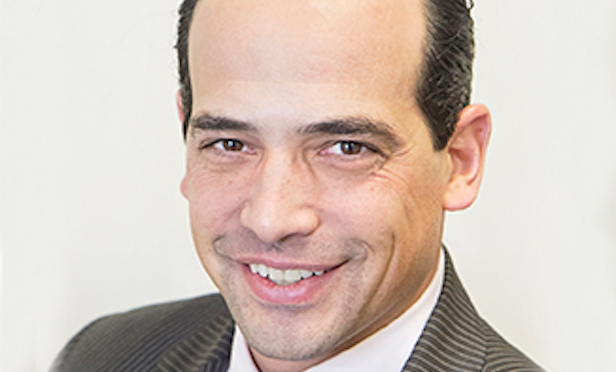 “We're watching capital flows, which are the single most important indicator of strength or weakness in the commercial real estate market,” says Spencer Levy. “I see these flows staying very strong, despite the falloff in Chinese capital into the states.”
“We're watching capital flows, which are the single most important indicator of strength or weakness in the commercial real estate market,” says Spencer Levy. “I see these flows staying very strong, despite the falloff in Chinese capital into the states.”
NEW YORK CITY–A troubled stock market? Check. Trade woes? Yup. Interest rate concerns? Been there. But despite the so-called potential headwinds, the commercial real estate market remains vibrant and, as Spencer Levy, chairman of Americas Research and senior economic advisor for CBRE, tells GlobeSt.com in this exclusive Q&A, primed for a continued strong run.
GlobeSt.com: Let's start with the macro picture first. What are the tea leaves telling you?
Spencer Levy: We're late cycle, interest rates are going up and the stock market's volatile. But notwithstanding that, real estate fundamentals are strong because equity capital flows are unprecedentedly robust and diverse and they're expanding into markets we didn't expect. We also don't expect interest rates to go up as much as we thought[This doesn't quite make sense], so our sense is that we have at least a good full year to run–and perhaps longer–in the commercial real estate investment market.
GlobeSt.com: Any concerns? Overbuilding for instance?
Levy: We looked at fundamentals across the five major asset types, and even though there are some signs of concern among Class-A office and multifamily in certain CBDs, these are specific markets with concerns about declining net effective rents.
Overall we haven't overbuilt in this cycle. The building in multifamily has been due to the secular shift of renters versus buyers. In industrial, it was due to a secular shift of demand because of e-commerce and the last-mile trend.
The things we're watching for in '19 that could shake our confidence are some of the same metrics others are watching and some they aren't. The one everyone is watching is stock market volatility, which matters because it's the number-one indicator of both investor and business confidence. The other thing we're watching is capital flows, which are the single most important indicator of strength or weakness in the commercial real estate investment market. I see these flows staying very strong, despite the falloff in Chinese capital into the states. Singapore, Canada and the French have made up that difference.
GlobeSt.com: What does that international influx say about US investment conditions?
Levy: The US economy is growing faster than almost every other country–Asian growth is decelerating, by the way–and it will continue to grow at least into mid- to late '19, and I'm optimistic that we can grow faster than the typical two percent. Also, yield is scarce and getting scarcer, especially in the major markets around the world. So we're seeing what one investor called an emerging US markets strategy–growing interest in places like Kansas City, Milwaukee or Baltimore, smaller markets that have yields that are 100 to 300 bps higher than their major-metro peers and showing very strong growth characteristics.
So, in all, we expect to have a much stronger, quicker recovery post-recession, whenever that may be.
GlobeSt.com: It's interesting to me that you didn't mention the much-publicized “smile” locales.
Levy: I was just in Chicago and saw a tremendous number of people moving back from those smile states for a better quality of life. Cities such as Raleigh, Denver and Nashville aren't in the smile zone, and these markets are leading the charge. Pittsburgh is also showing great strength because they have great tech talent, a live/work/play environment and a great quality of life.
GlobeSt.com: You get the Out-On-A-Limb Award, by the way. You're the first I've heard predict what coming out of the next correction will be like.
Levy: I don't focus on growth, but rather what comes after that. This two percent plus or minus growth range that we were in through about a year ago isn't just our past, but it's most likely our future. We're likely to see a slower growth future two or three years from now absent some radical secular shift that I just don't see. The reason for that is the megatrend of demographics and an aging population and, tragically, political intransigence on stuff we need in order to grow, like a better education system, infrastructure and R&D. And some of the markets I suggested have accomplished those things.
In all, the combination of a more disciplined industry from a building standpoint dovetails with a more disciplined industry from a lending standpoint. Which leads me to believe that no matter when the next recession occurs, we'll come out of it faster and better than prior cycles.
GlobeSt.com: And likely whatever happens will be after 2019?
Levy: For the past five years, I've been saying the next recession is two years away. It's difficult to predict a recession. I try to predict which markets will be more resilient not only during and post-recession but during a slower growth future.
© 2025 ALM Global, LLC, All Rights Reserved. Request academic re-use from www.copyright.com. All other uses, submit a request to [email protected]. For more information visit Asset & Logo Licensing.








